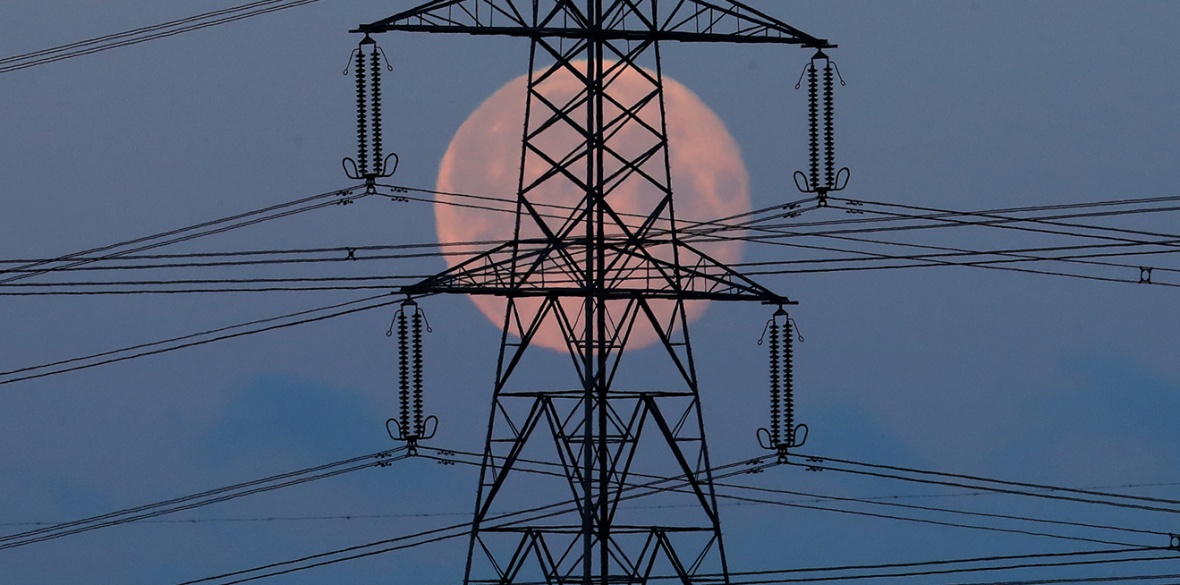This is the last article you can read this month
You can read more article this month
You can read more articles this month
Sorry your limit is up for this month
Reset on:
Please help support the Morning Star by subscribing here
WITHOUT serious action, millions of people in Britain will be plunged into fuel poverty in April when the energy price cap rise comes into effect.
While oil giants and energy companies are recording record profits, it is regular people that this government is expecting to bear the brunt of rising wholesale prices.
All of us will feel the squeeze as prices rise by almost £700, and for many of us it will become a question of whether to put food on our tables or heat our homes.
But this isn’t an inevitability — it is a political choice. It doesn’t have to be this way. We need to forge our own path, but we can take inspiration from sensible policies from countries like Denmark, Norway, Germany, and France.
The solutions to this crisis aren’t radical — or they shouldn’t be seen as such — they’re common sense.
Britain has won nature’s lottery with oil and gas in the North Sea, alongside having huge potential for wind and hydropower. But we’re throwing it away to protect private profits.
In Norway, oil and gas companies pay a corporation tax of 22 per cent and a special tax of 56 per cent. This is essentially a permanent windfall tax, and it works — for every £100 Norway collects in tax on oil from the North Sea, in the UK we collect a miserable £8.
Norway originally developed its hydropower capabilities, so that 98 per cent of their energy is renewable. They have since used the nation’s oil wealth to help develop a sovereign wealth fund worth $1.4 trillion.
While the Norwegian state is paying 80 per cent of people's energy bills above a capped price, the UK is handing tax breaks out to oil giants like BP who have not only paid zero tax on their North Sea operations in the last five years — they’ve actually received money from the taxpayer.
To tackle the climate crisis we need to stop drilling and switch to renewable energy, but while private oil and gas companies do continue to operate, we should be taxing them at the same level as Norway, and using this money to invest in building a clean, green, affordable energy system that is fit for the future.
While we desperately need a windfall tax, this alone won’t solve the energy crisis. We need public ownership more than anything else.
Now is the perfect time to create a publicly owned supply company that works for the public, not for shareholders. This is the norm in many countries. In Germany, France, and Italy most people are already receiving their energy from publicly owned supply companies — and research shows that this can reduce prices by up to 30 per cent.
In France, two thirds of people get their energy from EDF, which the French state owns 80 per cent of.
Instead of pushing millions into fuel poverty, the French government — which we know is not a radical one — has forced EDF to take the majority of the financial hit of these rising fuel prices.
In the UK, energy prices are rising by 54 per cent — in France, they’re rising by 4 per cent. The difference couldn’t be clearer. Right now our government is either watching as energy suppliers collapse, or using billions of pounds of public money to keep them operating.
There has never been a better time for a publicly owned energy supply company. As and when private companies fail, this publicly owned company could take over for the benefit of the public rather than handing out public money and getting nothing back.
Alongside supply, we also need to bring the privatised monopolies of energy transmission and distribution into public ownership.
The UK is currently the only country in Europe that has a fully privatised energy transmission grid, other than Portugal who were forced to privatise theirs after the financial crisis. National Grid is responsible for gas transmission across the UK mainland and electricity transmission in England.
In just the last year, National Grid has paid out £1.4 billion to their shareholders — money that should have been pumped back into the system. A few private distribution companies also take the energy from the power station to your home, and the profits from this line the pockets of shareholders around the world.
If you’re in London, the south-east or the east of England, your electricity is delivered to you by UK Power Networks. Last year it paid its billionaire Hong Kong owner, Li Ka-shing, a £237 million dividend for the second year on the bounce. If you’re in the north-east, your electricity is delivered by Northern Powergrid, a company owned by US conglomerate Berkshire Hathaway, which is owned by US billionaire Warren Buffett.
By bringing our energy transmission and distribution networks into public ownership, we’d save £3.7 billion a year. This money could be used to bring down energy bills and invest in renewable energy. Buying out these private companies would be a shrewd investment — it would pay for itself in around seven years.
The government doesn’t want to talk about the role of ownership in the energy crisis, but we can’t afford to let it go unnoticed.
Our energy system should work for all of us, not just a handful of shareholders, and we can only make that happen through public ownership. It’s time to build an energy system that works for us.
Cat Hobbs is director of We Own It.










